- Home
- Diane Capri
[Jess Kimball 01.0 - 02.0] Fatal Starts Page 4
[Jess Kimball 01.0 - 02.0] Fatal Starts Read online
Page 4
Border guards acted immediately. They shouted for Richard to drop his gun. He didn’t.
A guard shot and hit Richard in the leg. He went down, and kept shooting.
Bullets tattooed the back of the sedan. Anna’s screams intensified.
Idiot! You’ll hit Anna!
After an excruciatingly long few moments, the customs officer in the booth drew his weapon, and two additional officers ran out from the building. “Drop your gun! Drop your gun!”
Jess looked into Richard’s eyes. Either of them could have changed things at that moment.
But they didn’t.
Plan B. She jammed the accelerator to the floorboard. The sedan lurched forward, broke through the wooden gate, and raced onto American soil.
Richard shot at Jess’s car again. As she’d known they would, the guards returned fire.
Jess mashed the brake, jerking the sedan to a stop behind the solid walls of the U.S. Customs station. Applying pressure to her throbbing, bleeding arm, she managed to open the back door and unsnap Anna’s seatbelt. She slid the hysterical child onto the pavement and held Anna close, shielding her, until the deafening gunfire stopped.
In the brief silence, Anna’s screams became wailing sobs. Jess struggled to rise while holding the girl despite the searing pain in her arm, and stumbled back to view the scene at the kiosk. Richard lay on the ground, blood running from his mouth, lifeless eyes staring straight at her. Her first thought was, Thank God.
Jess’s anger flared. He’d chosen to die rather than let Jess take Anna. He’d intended to get all three of them killed. Instead, Peter’s father breathed life no more.
At that moment, Jess felt no remorse. Maybe she would be sorry some day, when Peter asked, “Why did you let them kill my father?” But not now.
6
A few days later, Jess joined Bette, who sat watching Anna on the Land of the Dragons playground. The family resemblance was unmistakable. Both were clearly from Betsy Martin’s gene pool. In Anna, Jess saw some hint of Richard too. How could a wonderful child have emerged from two such damaged parents?
The woman Jess had seen outside Betsy’s house the night of the shooting was there, too. Maria Gaspar’s youngest daughter and Anna were friends. Both girls were on the playground.
“She looks happy, doesn’t she?” Bette asked, with a wistful tone. Anna was in counseling and taking medication which the psychologist hoped would help her to work through the traumas she’d endured at her parents’ hands.
To reassure her, Jess said, “Don’t worry so much. She’s young. With luck and love, she won’t remember most of it.”
A tear rolled down Bette’s cheek. Her lips quivered. “She won’t have much to remember about her mother.”
Jess closed her eyes against tears of her own. She had risked her life so that Anna might thrive. Now, all she could do was hope. “It’s up to you to keep Betsy alive for her.”
“We’ll help, too, Bette,” Maria said, giving Bette’s shoulders a hug and meeting Jess’s gaze over Bette’s bowed head. “Carlos has been like a father to Anna for a while now, anyway.”
Jess nodded her agreement to this imperfect arrangement. Together, they watched Anna climb the rope ladders and slide down the dragon’s tail, laughing when she landed on her butt in the sand.
“Betsy was so smitten. And he loved her, too.” Bette stopped, bewildered. “What went wrong?”
Jess rubbed her sore arm to stop its pulsing. Like Richard’s effect on Anna, Jess’s wound would hurt for a long time and leave a permanent scar. Jess needed no reminder of the hole in her heart where Peter lived, but welcomed the pain and would welcome the scar, too. She’d narrowly escaped Richard twice. She never intended to forget that, or to make the same mistake again.
She rejected sweetening the truth. To defeat Richard forever, Bette must do her part. “Betsy knew he was dangerous before she married him. She ignored her instincts and deceived herself. I’ll help you, but the best thing you can do for Betsy now is to make sure Anna doesn’t repeat that pattern.”
And I’ll be watching.
FATAL DISTRACTION
DIANE CAPRI
The future is not in the hands of fate, but in ours.
– Jules Jusserano
DEDICATION
For Robert
CAST OF PRIMARY CHARACTERS
Governor Helen Sullivan
Oliver Sullivan
Eric Sullivan
Special Agent Frank Temple
Sheriff MacKenzie Green
Ben Fleming
Milton Jones
Ryan Jones
Investigative Journalist Jess Kimball
Peter Kimball
News Photographer Mike Caldwell
David Manson
Party Chairman Ralph Hayes
Arnold Ward
Vivian Ward
Matthew Crawford
Marilyn Crawford
Matthew ‘Mattie’ Crawford, Jr.
and
Tommy Taylor
PROLOGUE
Thornberry, Florida
Monday 2:00 p.m.
Even as humid July heat strangled the small central Florida country church, its sanctuary overflowed with bodies drawn by scandal’s stench like vultures to carrion. Whether they were genuine mourners or nakedly curious, Governor Helen Sullivan had lured them with her only son’s open burial service, hoping to unmask her son’s killer, for only then could Eric rest in peace.
Since the death of her son and his best friend Ryan Jones three weeks ago, media of every stripe had branded sixteen-year-old Eric a drunk driver, spoiled by indulgent parents, ruined by wealth and privilege. “Governor’s Son Kills Best Friend in Early Morning Crash,” read the worst of the headlines, though none granted Eric any presumption of innocence as they fueled the scandal.
Publicly, Helen had not contested the lies; instead she implemented today’s desperate plan.
While lines of strangers filed past her husband and Helen, Special Agent Frank Temple of the Florida Department of Law Enforcement stood close by, hands within easy reach of his weapon, scanning the church, seeking anything unusual or out of place. Valencia County Sheriff MacKenzie Green’s deputies stayed in constant visual and electronic contact with Temple’s security detail.
After filing past Eric Sullivan’s reconstructed body, the spectators approached his parents. “I’m so sorry,” they said. Or, “He’s in a better place.” A few dared to pat Oliver’s shoulder or caress the governor’s arm.
“Thank you,” Helen responded each time, accepting full blame with every false condolence.
Be strong, she thought, standing rigid behind her black veil, braced against waves of grief renewed by those few offering sincere compassion. Helen had lived her entire life in Thornberry, the small town in Valencia County some forty minutes northeast of Tampa, not far from Lakeland. In this thin slice of old Florida, threatened by the ambitions of politicians and developers and largely populated by residents holding fast to their simpler way of life, people chose to think the best of their neighbors. To these friends and colleagues, Helen could not trust herself to speak with composure, so only nodded and endured.
But most spectators came from more remote locales and for ignoble reasons. She studied each stranger in turn, divining whether they paid only mock respect, committing features to ineradicable memory using all six senses. She noted and analyzed their features, the dark perspiration circles under arms and on shirtfronts, makeup melted and congealed in creviced faces. Body odors mixed with deodorants and perfumes thickened the heavy air and forced short, rapid breaths, leaving her asthmatic lungs starved for air and her balance unsteady. She paused her mission only to raise her inhaler to her mouth or wipe her palms on her husband’s soaked linen handkerchief.
During a brief pause between attendees, Oliver put his hand on her shoulder and directed her attention to Ryan’s grandparents, who sat in a pew with a tall, sandy-haired man Helen didn’t know.
“I don’t se
e Milton,” Oliver whispered.
Milton Jones, Ryan’s father, was consumed with misdirected grief that pierced Helen’s heart all the more because of their long-shared history. She’d spent the better part of four years helping Milton while his wife Ruby died of cancer. His sorrow had been endless then, and seemed bottomless now.
Helen looked around the church. “Over there.” She gestured by inclining her head, noticing that Milton’s wrinkled suit barely touched his scrawny limbs. He looked as fragile as an incompetent scarecrow amid the murder of crowing reporters.
Milton had already granted several interviews to the tabloid press and scandal shows. They’d flattered him, seeking to learn what Helen refused to reveal. He’d used each as an opportunity to blame Eric and Helen for Ryan’s death, vicious accusations that remained without rebuttal.
Neither Milton nor the public knew that the crash was not Eric’s fault—that he had not ignored or missed the stop sign. Within the first forty-eight hours investigators found an inexpensive but sophisticated tracking device on the bottom of Eric’s vehicle, purchased with cash and therefore untraceable. A partial fingerprint on it matched none in law enforcement databases.
Shortly after that, Helen’s friend, Sheriff Mac Green, found the killer’s video camera mounted at the crash site. Helen flinched each time she watched the monstrous semi mash the CRV’s passenger side and wrap the smaller vehicle around its bumper in a deadly embrace, knowing a few seconds more and the CRV would have crossed State Route 50 safely, and Eric and Ryan would be alive. The sick bastard had recorded Eric’s murder in sharp hues and high-fidelity sound, every second of the fatal crash meant to torture his parents with vivid images they could never escape.
Two things became crystal clear from the discovery of the video:
First, the perpetrator had deliberately removed the stop sign, pulling it out of the ground before the crash and putting it back again after. The tracking device must have been used to signal the precise timing required to make the governor’s son’s crash most likely to occur.
Second, the man who’d murdered Eric and Ryan was cunning and dangerous.
She only hoped he wasn’t clever enough.
Oliver had begged her to release the truth, but Helen thought otherwise: By keeping the nature of the crash secret, she sought to inflate the killer’s hubris, enticing him to come closer and gloat, to reveal himself here at the funeral today.
As a mourner murmured, “Eric looks so good,” Helen let herself glance at her son in his casket, his smooth, childish jaw and curly brown hair so like her own, as unruly in death as in life. Each glimpse of Eric’s innocent face fueled her rage, her determination, and held despair at bay.
It did not, however, keep her from worrying about Oliver. Eric’s death had crushed his spirit; maintaining his silence when every instinct Oliver possessed urged him to defend his son weighed especially heavy.
Only two years older than she, Oliver seemed to have aged a decade in the three weeks since their son had died. His suit, too, hung loosely on his frame. Weary lines furrowed his brow and fatigue seeped from every pore. His plain gold wedding band glinted in the light when he raked broad, flat fingers through his sun-bleached hair.
Still, Oliver touched each mourner in turn, kindly offering comfort and accepting rote sympathy from strangers. “Thank you for coming,” he said, meaning the words. Or, “Helen and I appreciate your support.”
Helen looked away from the coffin and extended her hand to the next mourner before realizing who it was. Startled, she tasted something warm and salty flood her tongue. She lifted the damp handkerchief to her lips, her gaze firmly focused on Ryan’s father.
Milton Jones swayed on his feet, the scent of poorly metabolized alcohol emitted from his skin. Patches of stubble had escaped his razor along the knob of his Adam’s apple. The well-dressed, sandy-haired stranger she’d seen earlier with Ryan’s grandparents now stood by Milton’s side.
“You could have prevented this,” Milton said more loudly than necessary. His voice carried beyond their immediate circle to the sanctuary’s far reaches.
“Milton,” the man accompanying him cut in, “this is not the time. Please.” He put one palm on Milton’s shoulder and reached out with the other to shake Oliver’s hand, then Helen’s. “I’m Ben Fleming, Milton’s grief counselor. He’s distraught. Please forgive him.”
Milton shook Fleming off, glaring drunken hatred at Helen. “My boy would be alive if Miss Helen here wasn’t up in Tallahassee making enemies every chance she gets.”
“Ben’s right. That’s hardly fair, Milton,” Oliver intervened in the same gentle way that he handled all living things. “Our Eric’s gone, too.” His voice cracked and he stopped a moment to gather his composure.
“I loved Ryan,” Helen managed to say after a long, uncomfortable silence, all too aware of eavesdroppers.
Milton stared at Helen as if he’d never seen her before. “My boy is dead.” His voice broke as his eyes filled and tears spilled onto his hollow cheeks. “You’ll pay for this, Helen. Don’t think you won’t.” His last word ended on a keening sob that shook his entire body before Ben Fleming steadied him and moved him away from Helen.
Frank Temple, who’d stepped forward protectively, seemed to relax a little as he retreated to his place close behind her, once again scanning the church.
Oliver squeezed Helen’s hand and released it, then left to follow Milton and Ben Fleming. Helen watched as her husband approached them, put a comforting hand on Milton’s arm, and murmured gentle words that she knew would not soften the hard lines of Milton’s judgment.
The way Oliver addressed Fleming so familiarly, by his first name, she wondered if Oliver already knew him and where they might have met.
Helen returned to the line of hungry spectators as the next unpermitted hand touched her arm. She raised her chin a bit higher, grateful for the black veil that provided the only privacy she’d experience today.
Photographs, she knew, were already being posted from cell phones to the Internet, to be beamed around the country and the world.
After a long career as a prosecuting attorney and five years as Governor of Florida, she’d learned the hard lessons of public life. The press had dubbed her “The Iron Cowgirl,” and she tried not to care. Better to be reviled as cold and unfeeling than to let them suck on her grief like an exotic aphrodisiac.
At last, the organ played the first strains of “Amazing Grace.” Ushers stopped the unending parade and encouraged people to take their seats for the service. One escorted Helen to her place next to Oliver in the first pew.
The grief counselor, Ben Fleming, approached the dais and closed Eric into the casket, then adjusted the blanket of white roses over the center. Had Oliver asked him to do so, Helen wondered? Fleming’s performance of these small courtesies for Eric, his careful attention to the final details, demolished her defensive shield. She closed her eyes, squeezed hard.
Oliver made no attempt to hide the tears that tracked down his wind-chapped cheeks. He managed to thank Dr. Fleming for his kindness as Fleming walked past then Oliver engulfed Helen’s hand in both of his. The gesture spiked grief in her breast, and once again she squeezed her eyelids to hold back tears, grateful for the black veil.
Pastor Rickard delivered a eulogy as eloquent as any Helen had ever heard. Tears flowed freely from Oliver and the true mourners while Helen remained stoic. She used her inhaler again, but it wasn’t asthma that stole her breath. She glanced down at the damp handkerchief, surprised to see its milky white softness tinged pink. She noticed the pain inside her cheek for the first time and realized what had caused it.
After the service ended, the congregation rose and turned to watch Pastor Rickard precede the pallbearers who carried her son down the aisle. Spectators stood on every inch of the carpeted floor around the entire church.
Oliver took her hand and placed it through the crook of his arm. They walked down the aisle they had traveled togethe
r full of hope on their wedding day.
As planned, Frank and Mac remained positioned near Helen, but not too close to discourage the killer from approaching her if he wanted to. The less protection she appeared to have, the more likely he would risk coming near and somehow revealing himself.
At least she’d hoped he would when they’d planned this trap an eon ago. Now it seemed that she’d failed Eric yet again.
Ushers controlled the flow of spectators, allowing each pew to file out behind the Sullivans in an orderly fashion.
When Helen and Oliver reached a point about seven pews from the exit, she saw Milton Jones step out in front of them, staring them down. He didn’t move, even as they drew face to face. Oliver stepped ahead to shield her, but Milton blocked their exit as if to inflict another difficult confrontation.
Helen began to sense something seriously wrong. From the corner of her eye, she noticed Frank Temple bulling his way toward them from the crowded nave. Teeth clenched, she swallowed the metallic-tasting blood in her mouth.
“Please move out of the way, Milton,” Oliver said.
“Eric was stinking drunk. He wouldn’t give up the keys.” The hatred pulsed from Milton’s body in waves Helen could feel. “‘I’m the governor’s kid. Nobody can stop me.’ That’s what he said.”
Milton’s red eyes streamed but his voice was loud and manner belligerent. Helen looked around, alarmed. Ben Fleming had seemed a calming influence on Milton. Where was he now?
She saw Frank Temple pulling closer gradually, as if wading through waist-high molasses. The other agents and deputies deployed around the church were separated from Milton by the mass of spectators stuffed into the crowded sanctuary.

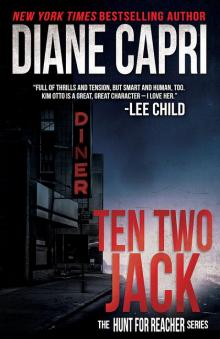 Ten Two Jack
Ten Two Jack Room with a Clue: A Park Hotel Mystery (The Park Hotel Mysteries Book 3)
Room with a Clue: A Park Hotel Mystery (The Park Hotel Mysteries Book 3)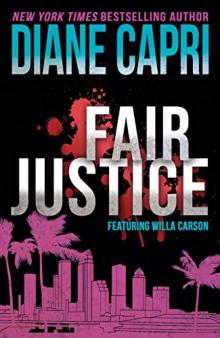 Fair Justice
Fair Justice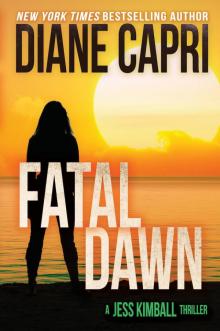 Fatal Dawn
Fatal Dawn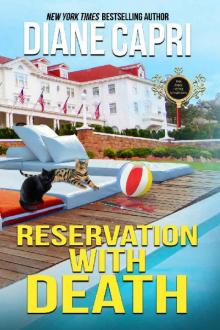 Reservation with Death
Reservation with Death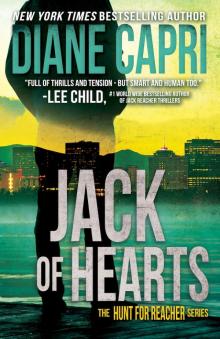 Jack of Hearts
Jack of Hearts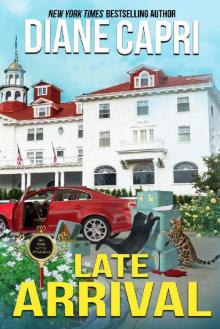 Late Arrival: A Park Hotel Mystery (The Park Hotel Mysteries Book 4)
Late Arrival: A Park Hotel Mystery (The Park Hotel Mysteries Book 4)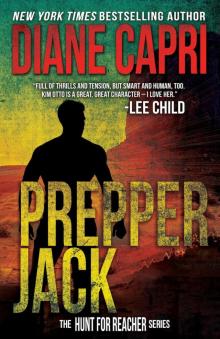 Prepper Jack
Prepper Jack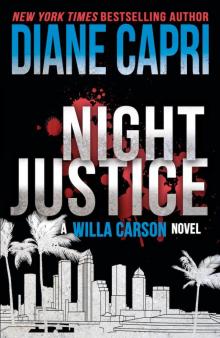 Night Justice
Night Justice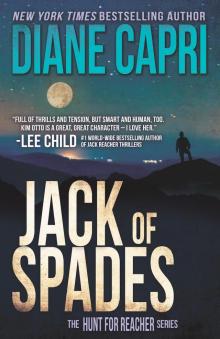 Jack of Spades
Jack of Spades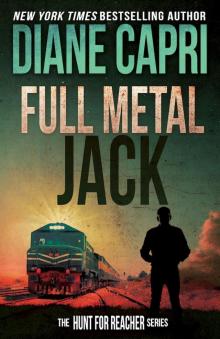 Full Metal Jack
Full Metal Jack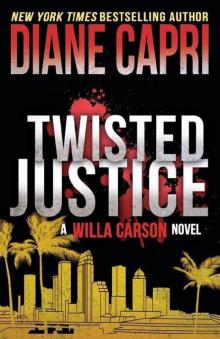 Twisted Justice
Twisted Justice Early Check Out
Early Check Out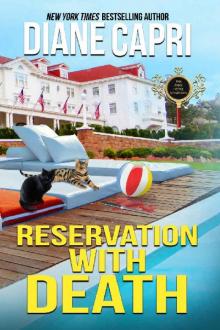 Reservation with Death: A Park Hotel Mystery (The Park Hotel Mysteries Book 1)
Reservation with Death: A Park Hotel Mystery (The Park Hotel Mysteries Book 1)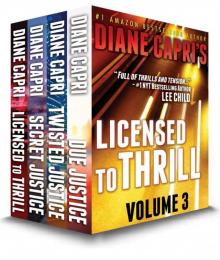 Licensed to Thrill: Volume 3
Licensed to Thrill: Volume 3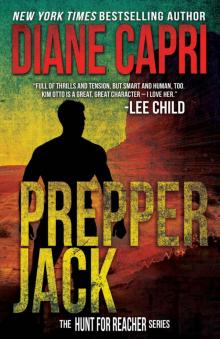 Prepper Jack: Hunting Lee Child's Jack Reacher (The Hunt For Jack Reacher Series Book 12)
Prepper Jack: Hunting Lee Child's Jack Reacher (The Hunt For Jack Reacher Series Book 12)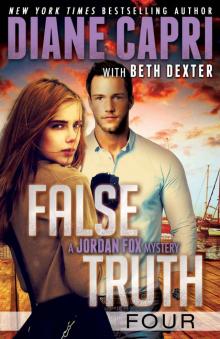 False Truth 4 (Jordan Fox Mysteries)
False Truth 4 (Jordan Fox Mysteries)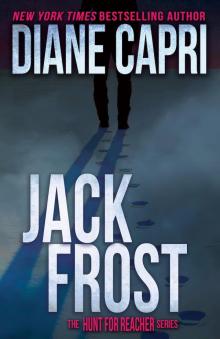 Jack Frost
Jack Frost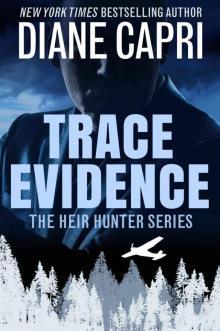 Trace Evidence (The Heir Hunter Book 2)
Trace Evidence (The Heir Hunter Book 2) Fatal Heat
Fatal Heat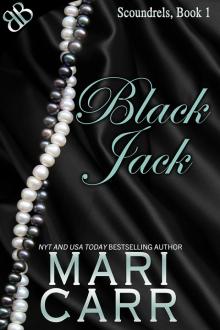 Black Jack
Black Jack Jack and Joe
Jack and Joe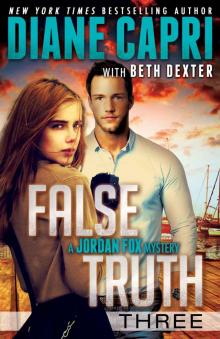 False Truth 3 (Jordan Fox Mysteries)
False Truth 3 (Jordan Fox Mysteries)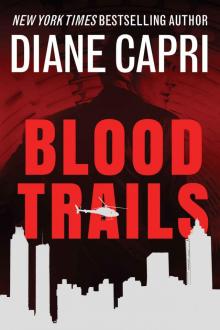 Blood Trails
Blood Trails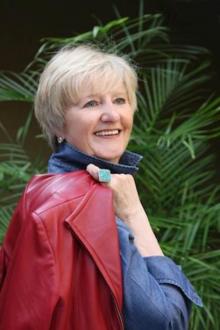 Don't Know Jack
Don't Know Jack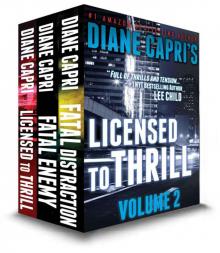 Licensed to Thrill: Volume 2
Licensed to Thrill: Volume 2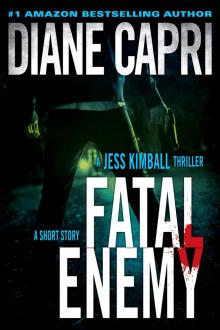 Fatal Enemy
Fatal Enemy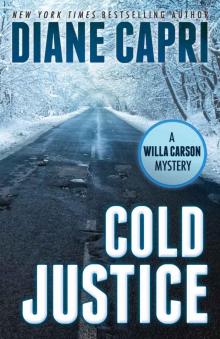 Cold Justice: A Judge Willa Carson Mystery (The Hunt for Justice)
Cold Justice: A Judge Willa Carson Mystery (The Hunt for Justice)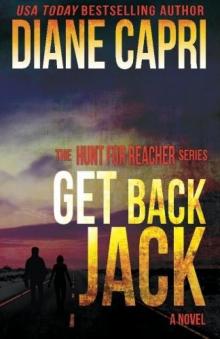 Get Back Jack
Get Back Jack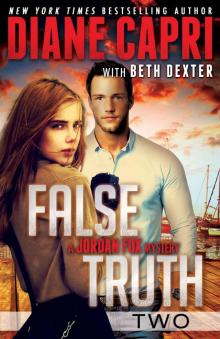 False Truth 2 (Jordan Fox Mysteries Series)
False Truth 2 (Jordan Fox Mysteries Series)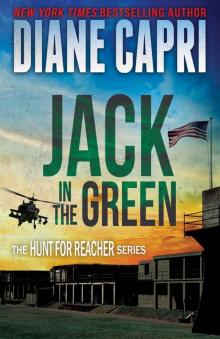 Jack in the Green
Jack in the Green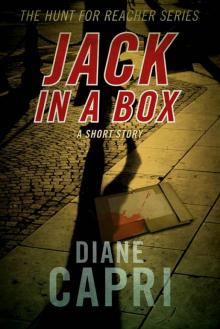 Jack In A Box
Jack In A Box![[Jess Kimball 01.0 - 02.0] Fatal Starts Read online](http://i1.bookreadfree.com/i1/04/01/jess_kimball_01_0_-_02_0_fatal_starts_preview.jpg) [Jess Kimball 01.0 - 02.0] Fatal Starts
[Jess Kimball 01.0 - 02.0] Fatal Starts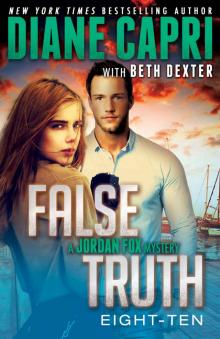 False Truth 8-10: 3 Action-Packed Romantic Detective Mystery Thrillers To Keep You Up All Night (Jordan Fox Mysteries Series)
False Truth 8-10: 3 Action-Packed Romantic Detective Mystery Thrillers To Keep You Up All Night (Jordan Fox Mysteries Series)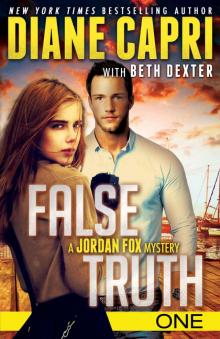 False Truth 1 (Jordan Fox Mysteries)
False Truth 1 (Jordan Fox Mysteries)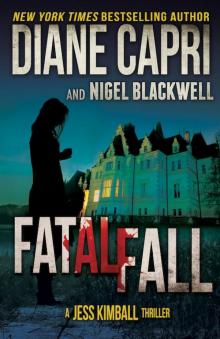 Fatal Fall
Fatal Fall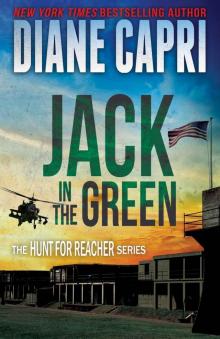 Jack in the Green (The Hunt for Jack Reacher Series)
Jack in the Green (The Hunt for Jack Reacher Series)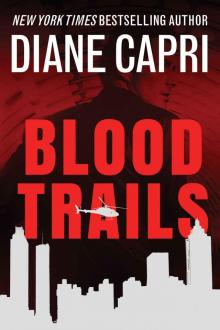 Blood Trails (The Heir Hunter Book 1)
Blood Trails (The Heir Hunter Book 1) Hit the Road Jack
Hit the Road Jack Jack and Kill (Hunt For Reacher (Short Story #2))
Jack and Kill (Hunt For Reacher (Short Story #2))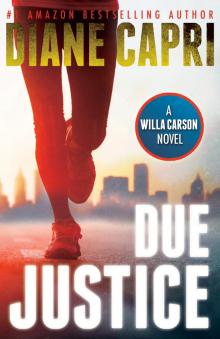 Due Justice
Due Justice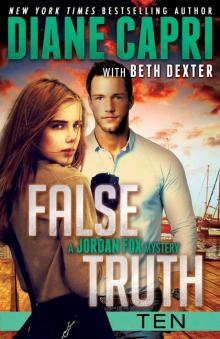 False Truth 10 (Jordan Fox Mysteries Series)
False Truth 10 (Jordan Fox Mysteries Series) Florida Is Murder (Due Justice and Surface Tension Mystery Double Feature) (Florida Mystery Double Feature)
Florida Is Murder (Due Justice and Surface Tension Mystery Double Feature) (Florida Mystery Double Feature)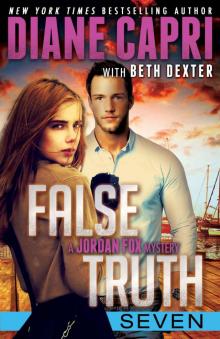 False Truth 7 (Jordan Fox Mysteries)
False Truth 7 (Jordan Fox Mysteries)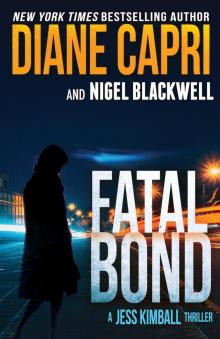 Fatal Bond
Fatal Bond Jack and Joe: Hunt for Jack Reacher Series (The Hunt for Jack Reacher Series Book 6)
Jack and Joe: Hunt for Jack Reacher Series (The Hunt for Jack Reacher Series Book 6)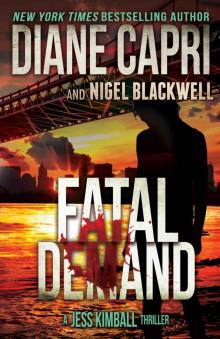 Fatal Demand: A Jess Kimball Thriller
Fatal Demand: A Jess Kimball Thriller![[Jordan Fox 01.0 - 04.0] False Truth Read online](http://i1.bookreadfree.com/i2/04/08/jordan_fox_01_0_-_04_0_false_truth_preview.jpg) [Jordan Fox 01.0 - 04.0] False Truth
[Jordan Fox 01.0 - 04.0] False Truth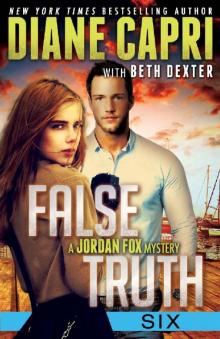 False Truth 6 (Jordan Fox Mysteries)
False Truth 6 (Jordan Fox Mysteries) Deadly Dozen: 12 Mysteries/Thrillers
Deadly Dozen: 12 Mysteries/Thrillers Jack and Kill
Jack and Kill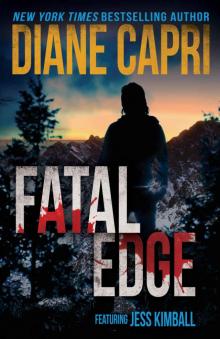 Fatal Edge: A Jess Kimball Thriller (The Jess Kimball Thrillers Series Book 6)
Fatal Edge: A Jess Kimball Thriller (The Jess Kimball Thrillers Series Book 6)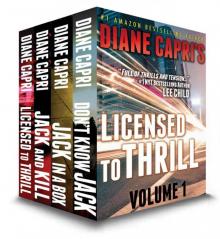 Licensed to Thrill: Volume 1
Licensed to Thrill: Volume 1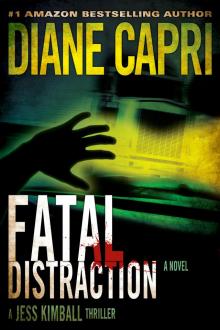 Fatal Distraction
Fatal Distraction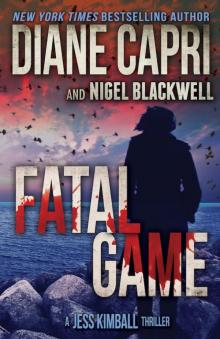 Fatal Game
Fatal Game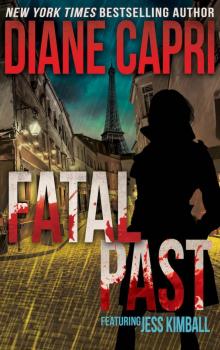 Fatal Past: A Jess Kimball Thriller
Fatal Past: A Jess Kimball Thriller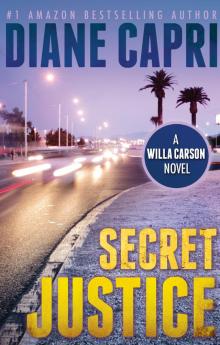 Secret Justice
Secret Justice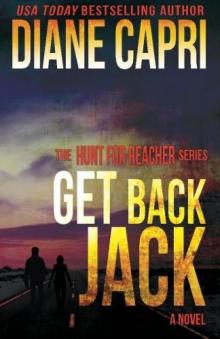 Get Back Jack (The Hunt for Jack Reacher 4)
Get Back Jack (The Hunt for Jack Reacher 4)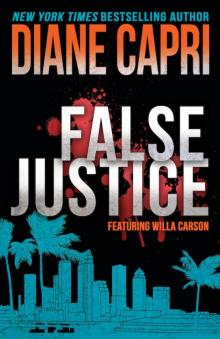 False Justice
False Justice